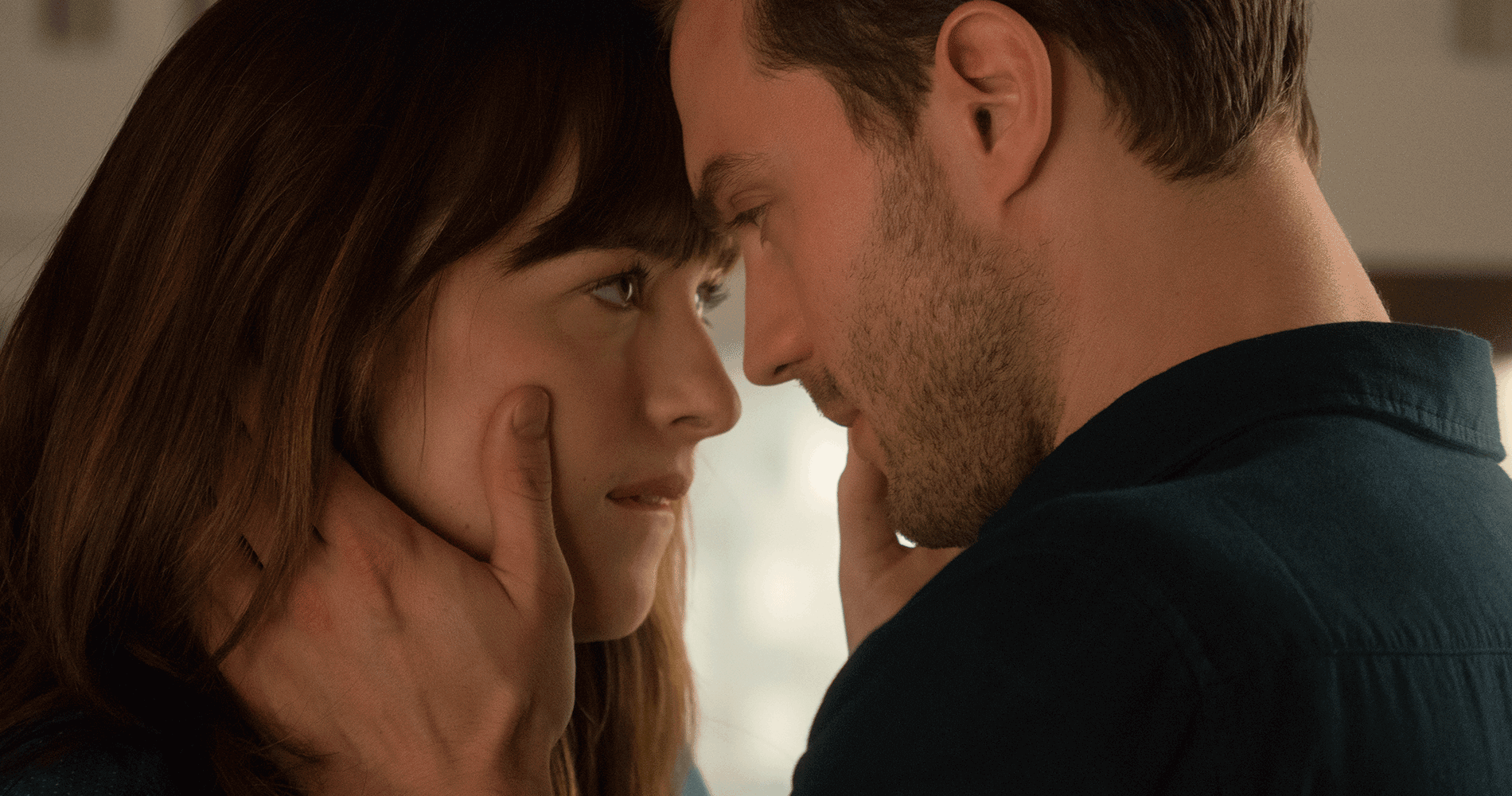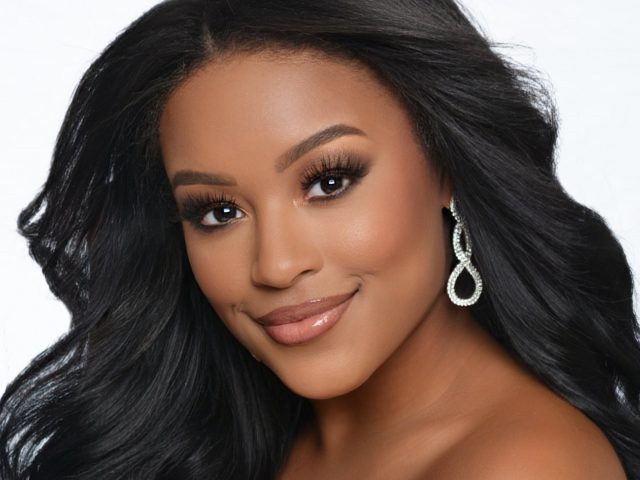A Closer Look at Unhealthy Behaviors in the Fifty Shades Trilogy
What love story these days wouldn’t be complete without a little drama? The buzz surrounding the latest release of the Fifty Shades of Grey trilogy, “Fifty Shades Darker,” shows how the media has normalized controlling, abusive behavior. Pop-culture glamorizes unhealthy relationships and convinces us that this type of “crazy love” is real love. Romanticizing unhealthy relationship behavior is dangerous because anyone watching the films could be misled to believe that these behaviors are normal in a relationship. With pop-culture making “crazy love” look desirable, abuse in relationships can be hard to recognize.
The newest Fifty Shades film continues the unconventional relationship of the successful business magnate Christian Grey and the young Anastasia Steele. Throughout the trilogy, there are lots of examples of unhealthy relationship behaviors.

Control & Intimidation
Telling you who to hang out with, what to eat, when to speak or what to think are indicators of control in a relationship. In the first film, Christian persistently attempts to get Ana to sign a contract that would make her the submissive partner in a sexual relationship. The contract that not only forces Ana to become obedient but also limits what food she eats and dictates her birth control. Christian also calls Ana when she is out with her friends and demands that she goes home immediately. Despite his continuous attempts to subdue Ana, she is reluctant to sign the contract.
Christian is also incredibly possessive of Ana – he views Ana as property and constantly refers to her as all his. In the second film, Ana gets a position as an assistant at Seattle Independent Publishing. Ana’s boss, Jack, takes an interest in her and when she is out with him at a local bar, Christian shows up and takes her home. He reveals that his own company is looking to acquire the company where she works, insinuating that he has power over both Ana and her boss. Throughout the films, it is apparent that Christian has a need for dominance, which is satisfied only by control over his submissive partner Ana.

Stick it Out Mentality
After deciding that the contract between her and Christian is not right for her, Ana breaks off their relationship. But when he proposes a new arrangement between the two, she can’t resist his offer. Many times, those in abusive relationships think that they can change their partner or that if they stick it out, the relationship will get better. It is clear throughout the films that Ana thinks she can change Christian and get him to open up to her emotionally.

Intensity
Over the top behavior that feels like too much too soon, moving too quickly and obsession are all signs of intensity in a relationship. Christian flatters Ana with lavish gifts early in their relationship, sending her first edition copies of Tess of the d’Urbervilles and a laptop. He takes her on helicopter rides and pampers her with nice dinners and a trip to a beauty salon prior to an elaborate masquerade ball that they attend together. In many unhealthy relationships, gifts and romantic gestures in the early stages are used as leverage to gain control over someone emotionally.
Throughout the trilogy, Christian repeatedly makes surprise appearances at places where Ana works and visits. He shows up unannounced at a hardware store where Ana works during college, claiming that he happened to be “in the area.” He also appears as a guest speaker at her graduation ceremony and, in the second film, shows up at an art show held by her friend Jose and again at a bar when she is out with her boss.
The relationship between Ana and Christian moves very quickly. Christian not only asks Ana to move in with him after dating for a short period of time, but as soon as they have moved some of her belongings from her place, he asks Ana to marry him. Not only could Christian’s repeated appearances be considered stalking, but the relationship he has with Ana is super intense and borderline obsessive!

Jealousy
Irrational, angry behavior when you speak with someone that is perceived as a threat and persistently accusing you of flirtatious or inappropriate behavior are signs of jealousy in a relationship. Christian shows signs of jealousy early on, first with Ana’s friend Jose and then later with Ana’s boss, Jack. As with many abusive relationships, Christian’s jealousy turns into outright possessiveness as he demands that Ana answers his calls and to know where she is at all times. He often sulks when Ana talks to other guys and goes as far as to freeze Jack’s finances when he finds out that the two had planned an overnight business trip.

Isolation
Insisting you only spend time with them, making you feel dependent on them for money, love or acceptance are acts of isolation. An example of this is when Christian forces Ana to sign a “non-disclosure” agreement, where Ana is not allowed to talk about their relationship with any outsiders including family and friends. Christian leads a very secretive life and asks that Ana keeps their relationship a secret as well. When Christian finds out that Ana plans to visit her mother in Georgia without telling him, he reminds her that “you’re mine.”
[clickToTweet tweet=”In a pretty package, unhealthy relationship behaviors are seen as signs of passion rather than abuse.” quote=”In a pretty package, unhealthy relationship behaviors are seen as signs of passion rather than abuse.”]
By continuously wrapping up this type of behavior in a pretty package, unhealthy relationship behaviors are portrayed as signs of passion rather than abuse. The bottom line is that healthy relationships are about equality and mutual respect, not about dominance and control. While it might seem flattering or you might think that behaviors like this can be attributed to a difficult past, there is no excuse for unhealthy and abusive behavior. If a relationship makes you feel nervous, unsure, upset, confused or overwhelmed those are signs that something isn’t quite right. Don’t ignore these feelings and talk to a friend, family member, teacher or counselor for help.
Photo Credit: Courtesy of Universal Pictures
Browse by Category

Don’t Be on the Naughty List: Spotting Unhealthy Relationship Signs This Holiday Season
The holidays are meant for joy, connection, and celebration—whether it’s Christmas, Hanukkah, Kwanzaa, or cozy winter vibes. But if someone…
How to Have Healthy Holiday Conversations with Family (and Prep Your Partner)
The holidays are a time for family, good food, and—let's…
Finding Strength in Our Stories: Domestic Violence Awareness Month
⚠️ Trigger Warning: This blog includes content and language related…
Understanding Domestic Violence Awareness Month (DVAM)
October is almost here, and that means it’s time to…
4 Students Share How They Helped a Friend in an Unhealthy Relationship
Watching a friend struggle in an unhealthy or abusive relationship…














